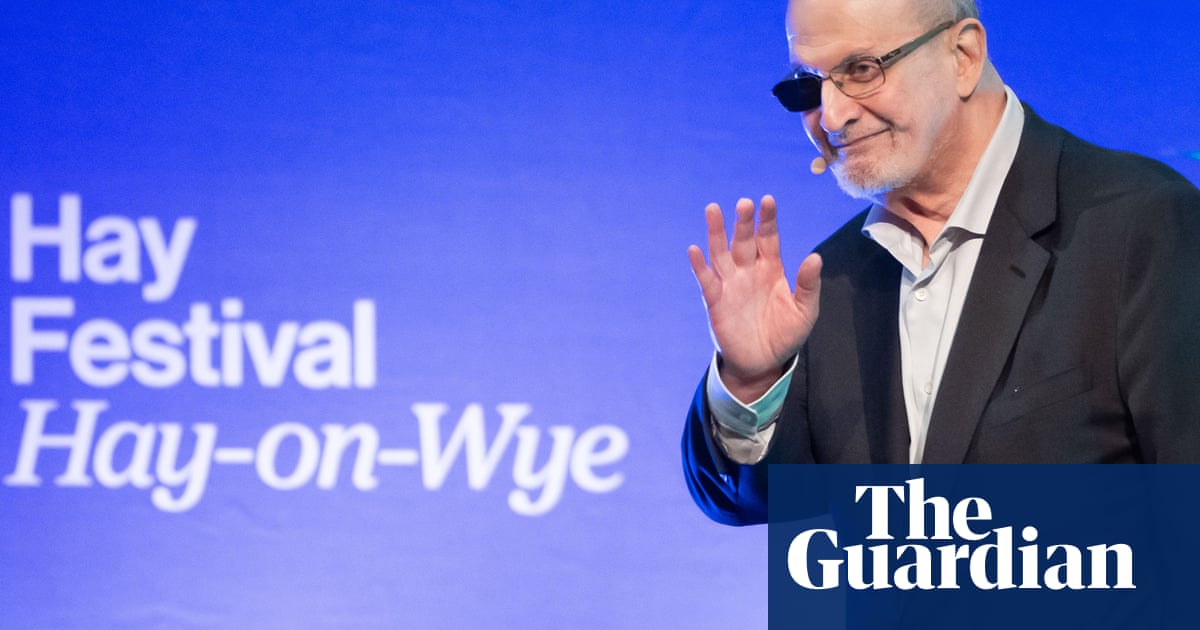Salman Rushdie has said that authors are safe from the threat of AI – until the moment it can create a book that makes people laugh.
Speaking at theHay festivalin Hay-on-Wye, Wales, Rushdie said he had “never tried AI” and liked to pretend it didn’t exist.
But the problem AI had was that it couldn’t make up its own jokes, the writer said. “It has no sense of humour – you don’t want to hear a joke told by ChatGPT. If there’s a moment when there’s a funny book written by ChatGPT I think we’re screwed.”
Rushdie was making his most high-profile in-person appearance in the UK since a stabbing in the US while he was on stage left him blind in the right eye.
The audience was asked to arrive in good time because of the extra security. Police officers stood by in the wings and security staff flanked the stage.
Rushdie, 77, said he was glad that his attacker, Hadi Matar, 27,had been convicted of attempted murder and assault and jailed for 25 years.
But he said what had given him closure was writing about it in his book Knife: Meditations After An Attempted Murder.
He said: “I’m glad that trial is over and done with. And that he got the maximum sentence. The closure was more finishing writing about it.”
Rushdie said he was also pleased he had new fiction coming out later in the year and writing it “felt like coming home”.
He continued: “Ever since the attack, really, the only thing anybody’s wanted to talk to me about is the attack. And I’m over it. It will be nice to have stories to talk about.
“When I wanted to be a writer, it never occurred to me that I would write about myself. That seemed like the most uninteresting thing of all. I wanted to make stuff up.”
Rushdie also spoke about Donald Trump, saying the world was in an “orange moment”. He said: “I don’t know what to do with it – he was elected”, but added: “So was Hitler, by the way.”
Sign up toBookmarks
Discover new books and learn more about your favourite authors with our expert reviews, interviews and news stories. Literary delights delivered direct to you
after newsletter promotion
Rushdie argued that in a world where people struggled to agree on the truth, stories and fables were even more important – and could feel more real. But he said he did not like books that tried to teach him something and preferred ones he could inhabit.
He joked that most writers did not make much money – unless they wrote about “child wizards” and suggested JK Rowling was the Taylor Swift of literature.
Rushdie spent years in hiding because of threats to his life after the publication of his novel The Satanic Verses, a fictional story inspired by the life of the Muslim prophet Muhammad, in 1988.
In August 2022, he was attacked on a New York lecture stage and left with severe injuries including vision loss, damage to his liver and a paralysed hand caused by nerve damage.
In Knife,Rushdie relived the traumatic events of the attack and its aftermath, describing his eye lolling on his cheek like “a large soft-boiled egg”, but also described his healing and recovery.
